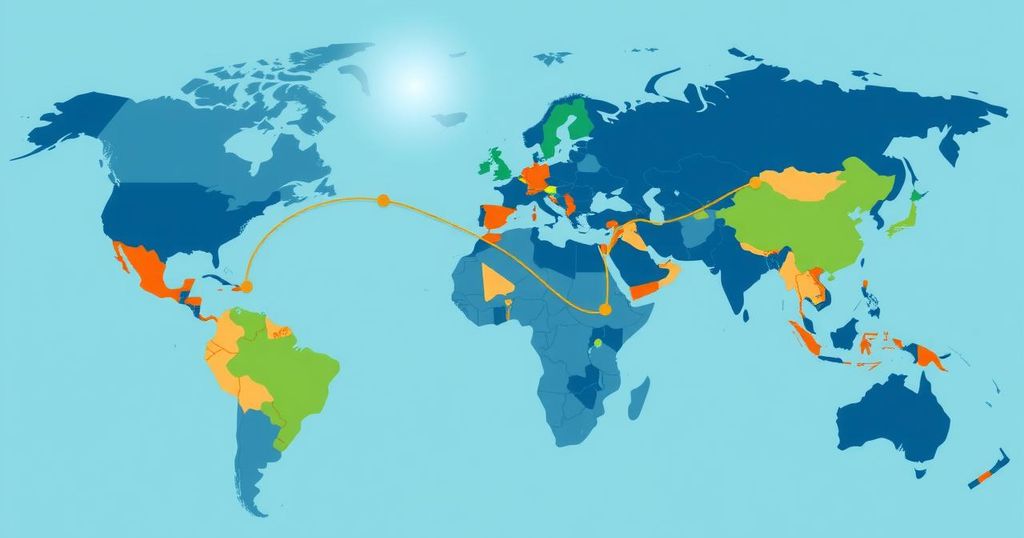Dhruva Jaishankar discussed U.S. tariff priorities under President Trump, focusing on Canada, Mexico, China, and the EU, while India remains somewhat exempt. He expressed optimism for trade negotiations that could culminate in an interim agreement. He emphasized the significance of the Raisina Dialogue for global discourse on pressing issues. He also highlighted the challenges for the Global South related to institutional reform and climate justice amidst reduced U.S. engagement.
Executive Director of the Observer Research Foundation, Dhruva Jaishankar, highlighted the current tariff priorities of U.S. President Donald Trump, which predominantly include Canada, Mexico, China, and, to a lesser extent, the European Union. He noted that India has, so far, been relatively exempt from these tariffs. However, he cautioned that India’s higher tariffs compared to the U.S. may lead to it facing significant repercussions along with countries like Malaysia and Brazil.
During a conversation with ANI, Jaishankar revealed that discussions have occurred between India’s Union Minister of Commerce and the U.S. Trade Representative. He expressed optimism for an interim agreement by April 2, which could lead to a long-term resolution by September or October. Such an agreement is anticipated to stabilize U.S.-India relations, yet it will require concessions from both parties to avoid escalating retaliation.
He remarked on the ongoing Raisina Dialogue in Delhi, emphasizing its importance as a global forum with over 100 sessions and participation from 4,000 delegates from across the world. Jaishankar differentiated the Raisina Dialogue’s constructive tone from that of confrontational international conferences like the Munich Security Conference. The prevailing themes at the dialogue include connectivity, trade, and significant geopolitical shifts, particularly relating to Russia and Ukraine.
Regarding the Ukraine situation, Jaishankar noted a ceasefire agreement reached between U.S. officials and Ukraine, currently awaiting Russia’s response. He anticipates a meeting between President Trump and President Putin might clarify the next steps regarding the ceasefire’s terms, as Ukraine’s status remains uncertain amidst international negotiations.
Jaishankar discussed India’s potential intermediary role in the Russia-Ukraine conflict, mentioning that while Saudi Arabia has facilitated some dialogue, India remains open to supporting negotiations if desired by both parties. Nonetheless, the current preference appears to lie with Saudi mediation.
In addressing the broader implications of reciprocal tariffs, Jaishankar articulated three major issues affecting the Global South that also resonate with India: institutional reform in global entities, health, energy, and food security concerns prompted by the COVID-19 pandemic and geopolitical tensions, as well as climate justice. He suggested that while there could be opportunities for the Global South in the current scenario, the diminished U.S. engagement may also pose challenges in achieving mutually beneficial reforms.
Dhruva Jaishankar provided insights into the U.S. tariff priorities focusing on Canada, Mexico, China, and the EU, noting that India has been relatively exempt but may face increased challenges due to higher tariffs. He expressed hope for progressive U.S.-India trade negotiations leading to interim and long-term agreements. The Raisina Dialogue serves as a positive global platform addressing critical geopolitical issues, while the ongoing Russia-Ukraine conflict and evolving dynamics shape international diplomacy. Furthermore, challenges facing the Global South, including institutional reform and climate justice, remain areas of concern requiring collective action and engagement.
Original Source: www.business-standard.com






